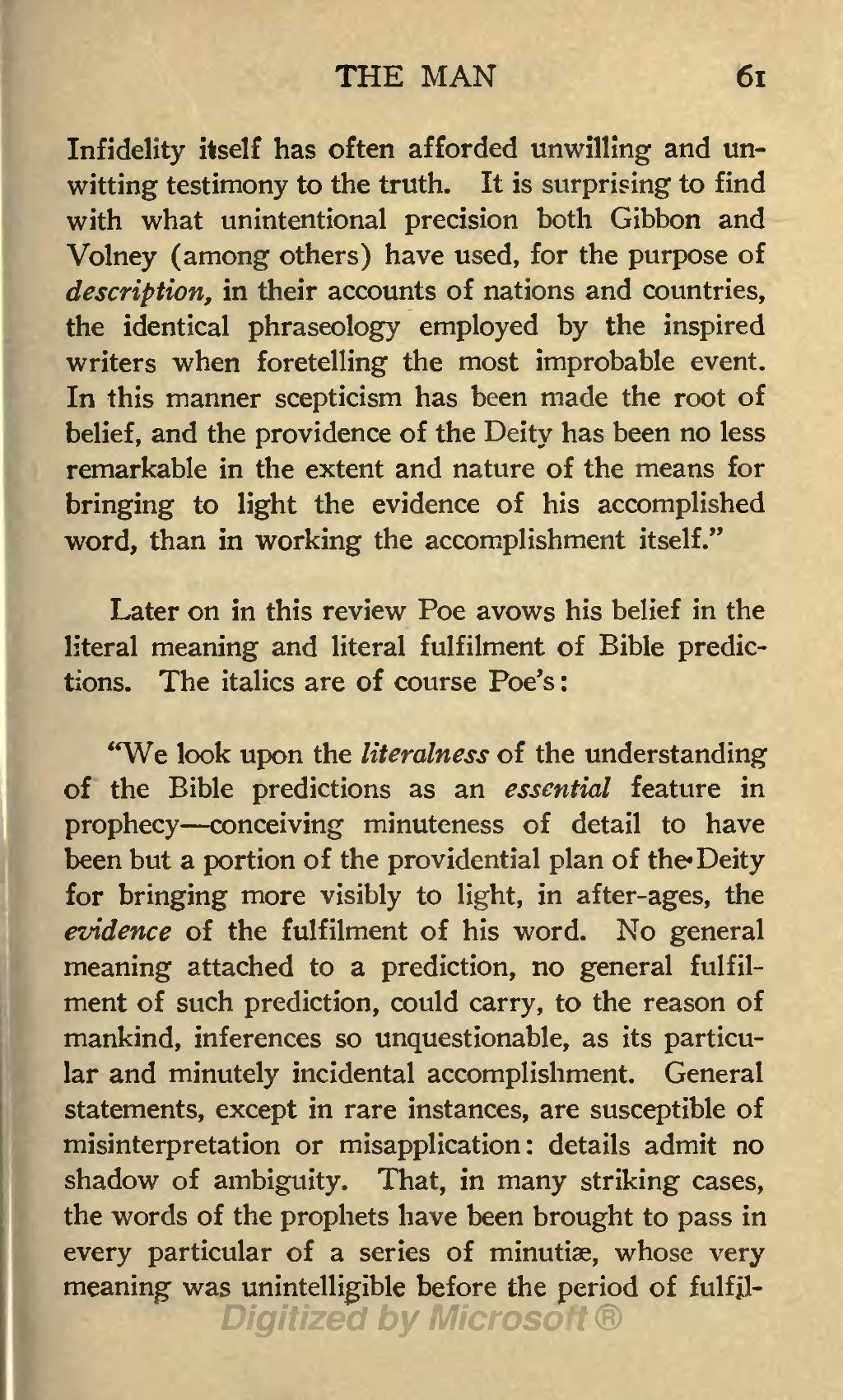Infidelity itself has often afforded unwilling and unwitting testimony to the truth. It is surprising to find with what unintentional precision both Gibbon and Volney (among others) have used, for the purpose of description, in their accounts of nations and countries, the identical phraseology employed by the inspired writers when foretelling the most improbable event. In this manner scepticism has been made the root of belief, and the providence of the Deity has been no less remarkable in the extent and nature of the means for bringing to light the evidence of his accomplished word, than in working the accomplishment itself."
Later on in this review Poe avows his belief in the literal meaning and literal fulfilment of Bible predictions. The italics are of course Poe's:
"We look upon the literalness of the understanding of the Bible predictions as an essential feature in prophecy—conceiving minuteness of detail to have been but a portion of the providential plan of the Deity for bringing more visibly to light, in after-ages, the evidence of the fulfilment of his word. No general meaning attached to a prediction, no general fulfilment of such prediction, could carry, to the reason of mankind, inferences so unquestionable, as its particular and minutely incidental accomplishment. General statements, except in rare instances, are susceptible of misinterpretation or misapplication: details admit no shadow of ambiguity. That, in many striking cases, the words of the prophets have been brought to pass in every particular of a series of minutiæ, whose very meaning was unintelligible before the period of fulfil-
